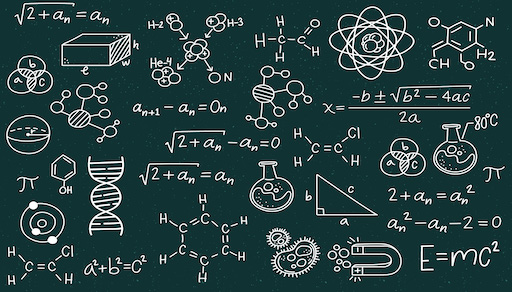Chemistry, physics, and biology are three scientific disciplines that have greatly influenced our understanding of the world. While they are all sciences, they each vary in terms of their subject matter, methodology, and tools. In this article, we’ll delve into each of these fields, as well as the techniques and equipment typically employed to study them.
Chemistry
Chemistry is a scientific discipline that deals with the study of matter and its properties at the molecular level. This field of study aims to comprehend the composition, structure, and behaviour of substances and how they interact with one another. Chemists use a variety of tools and equipment, such as Bunsen burners, pipettes, and spectrometers, to investigate the properties of matter. In addition, they employ advanced techniques, such as chromatography, mass spectrometry, and nuclear magnetic resonance (NMR) spectroscopy, to analyse and identify chemical compounds.
Chemistry relies on several vital tools, including the Bunsen burner. This device is crucial for heating substances and carrying out chemical reactions. Another essential tool is the pipette, which accurately measures and transfers small volumes of liquids. Spectrometers are also critical in chemistry as they measure the absorption and emission of light by substances. This helps chemists identify chemical compounds and study their properties.
Chemists employ various tools and techniques to analyse chemical compounds. Besides conventional laboratory instruments, they also use advanced techniques such as chromatography, mass spectrometry, and nuclear magnetic resonance (NMR) spectroscopy. Chromatography is a method that helps separate and identify the different components of a mixture. Mass spectrometry enables the identification of the chemical composition of a substance by measuring its mass-to-charge ratio. On the other hand, NMR spectroscopy is a technique that helps chemists study the molecular structure of compounds.
Physics
Physics is concerned with the fundamental nature of matter and energy and aims to understand the laws of nature that govern the behaviour of particles at both the subatomic and cosmic levels. Physicists utilise various instruments and equipment to study the universe, including particle accelerators, telescopes, and lasers.
Additionally, they use theories such as quantum mechanics, relativity, and thermodynamics to explain the behaviour of matter and energy. Quantum mechanics is a theory that explains the behaviour of particles at the atomic and subatomic levels. Relativity, however, describes how objects behave when they are in motion. Finally, thermodynamics is a branch of physics that focuses on the relationship between heat, energy, and work.
Biology
Biology is the study of living organisms and their interactions with each other and their environment. It aims to comprehend the structure, function, and behaviour of living systems across all levels of organisation, from the molecular and cellular to the organismal and ecological. To investigate living systems, biologists employ a variety of tools and equipment, such as microscopes, centrifuges, and genetic sequencers. Furthermore, they employ techniques such as genetics, molecular biology, and ecology to better understand how living organisms work and evolve.
Microscopes, centrifuges, and genetic sequencers are all essential tools used in biology. Microscopes are used to study the structure and behaviour of cells and tissues, while centrifuges are used to separate different components of biological samples. Genetic sequencers, on the other hand, are used to study the DNA and RNA of living organisms.
Biologists utilise various instruments and techniques, including genetics, molecular biology, and ecology. Genetics involves studying the inheritance and variation of traits. Molecular biology is focused on understanding the molecular basis of biological activity, while ecology is the study of how living organisms interact with their environment.
In conclusion, it is important to appreciate the fundamental differences between chemistry, physics, and biology in order to understand their significance and their role in our lives. Each of these sciences has its own unique approach, subject matter, techniques, and equipment. Techmate provides high-quality equipment and tools for all three disciplines, enabling scientists to advance their research and understanding of the world. By using Techmate’s equipment, scientists can conduct experiments with precision and accuracy, ensuring that their results are reliable and reproducible. We invite you to browse through our catalogue to find a product that meets your lab needs or to contact us if you require any additional assistance.

